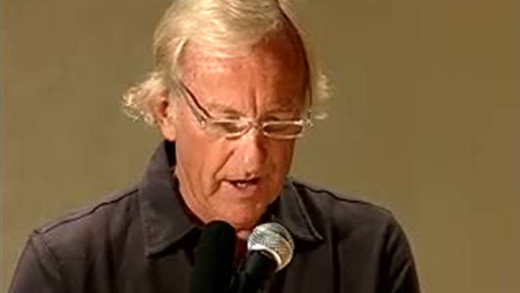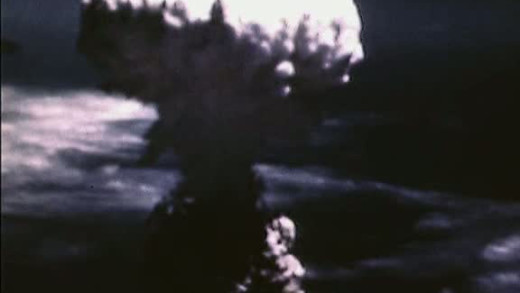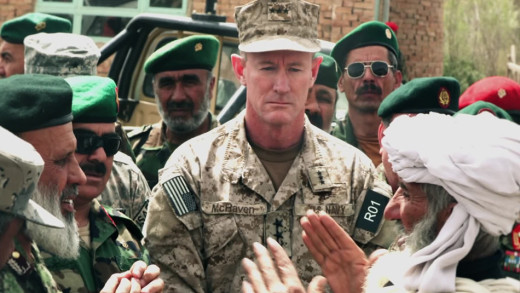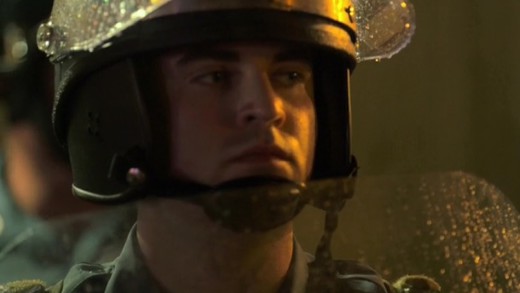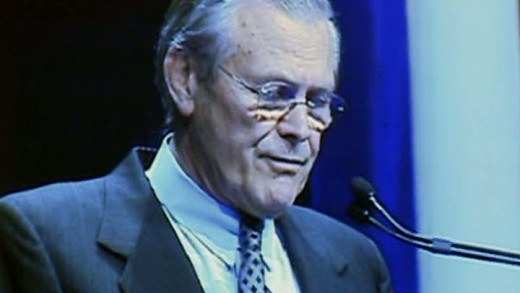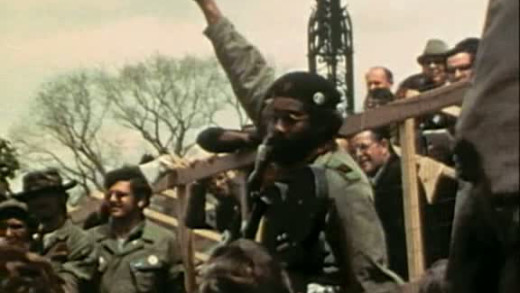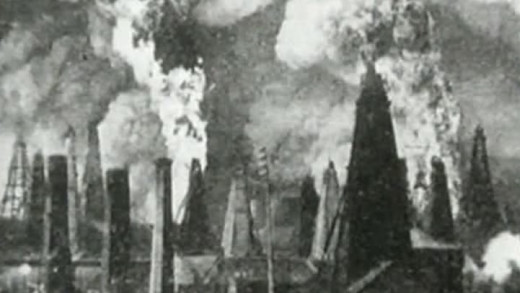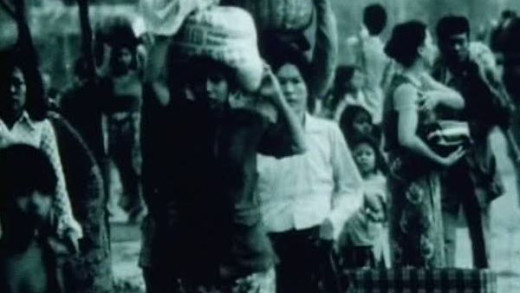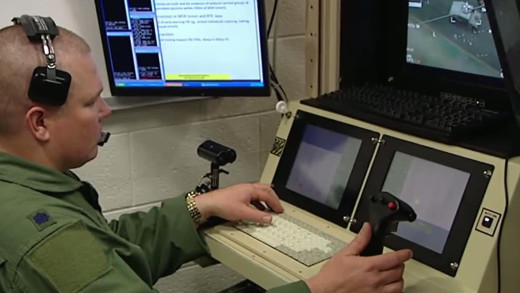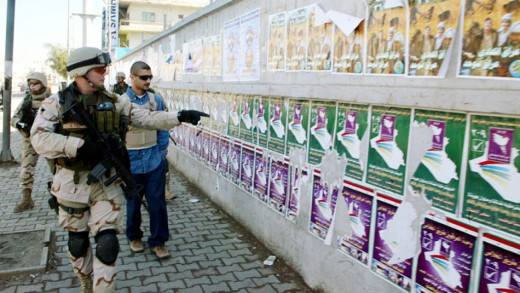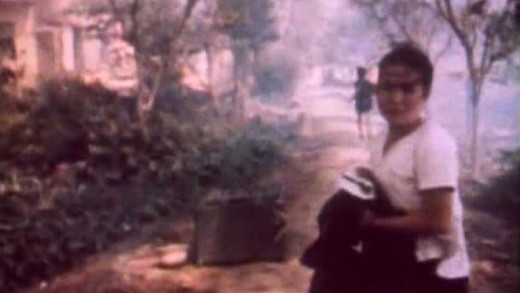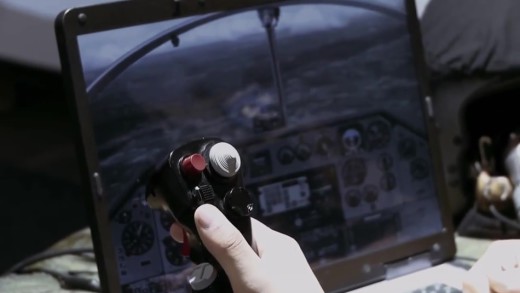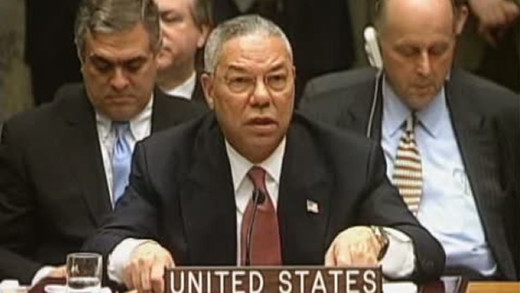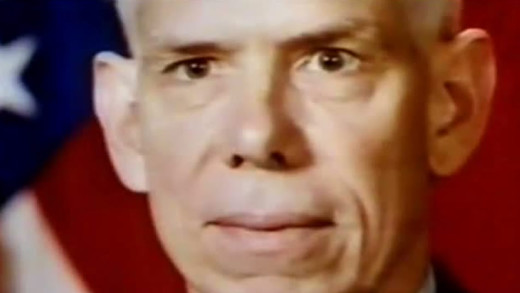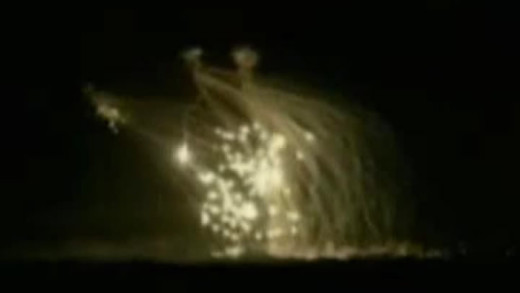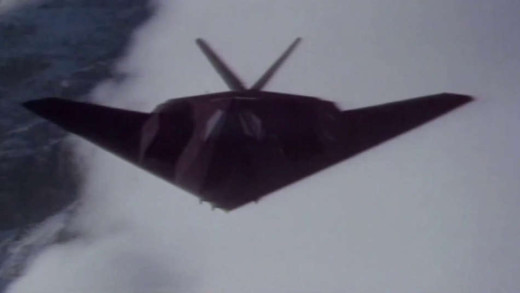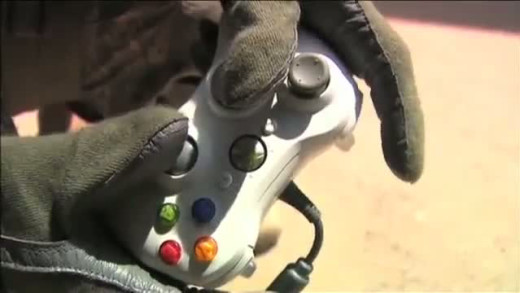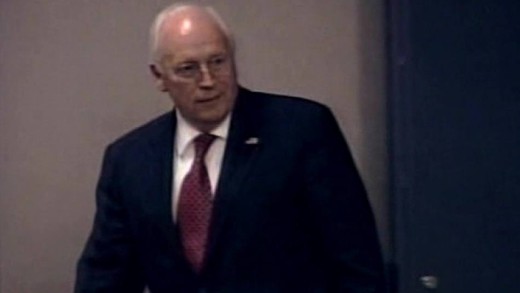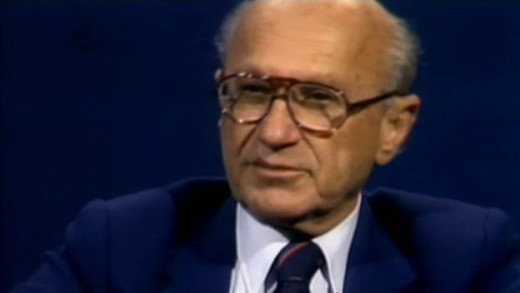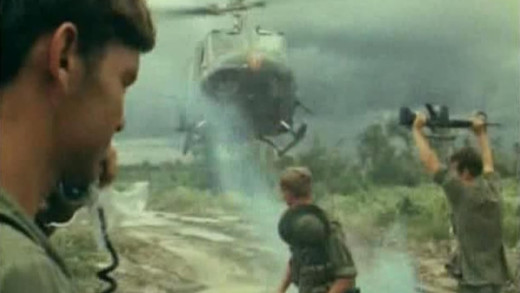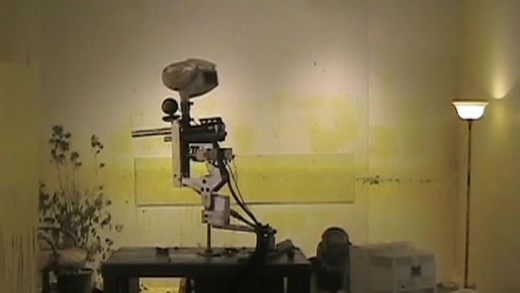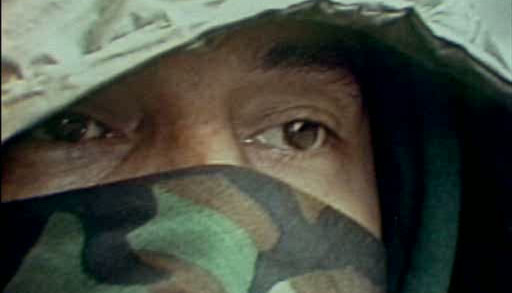Australian journalist, author and film maker John Pilger speaks about global media consolidation, war by journalism, the US military and its quest for domination/hegemony in the post 9-11 era and the false history that is presented in the guise of 'objective' journalism...
On 8th August 1945, the United States dropped its second atomic bomb on Nagasaki, Japan, three days after the bombing of Hiroshima. The city was a veritable apocalyptic vision, devastated by this new type of weapon. Nagasaki -- The Horror Of Fat Man documents the memories of survivors, both Japanese civilians and Western Prisoners Of War, as they relate the morbid aftermath of the bombings, the United States occupation, and the segregation that still effects fallout victims to this day.
Dirty Wars follows investigative reporter Jeremy Scahill into the hidden world of the United States' covert wars and assassination programmes—from Afghanistan to Yemen, Somalia, and beyond. What begins as a relatively commonplace report on the cover-up of a murderous US night raid in a remote corner of Afghanistan, quickly turns into a global investigation of the secretive and powerful Joint Special Operations Command (JSOC)—a top secret arm of the Military-Industrial-Intelligence Complex. As Scahill digs deeper into the activities of JSOC, he is compelled to report on the growing chilling underworld of covert operations carried out across the globe at the behest of the United States government: Targeted killings of American citizens; secret drone strikes; outsourcing American kill lists to warlords, private corporations and paramilitaries. The list goes on. Dirty Wars is a sobering investigation and personal journey into the most important human rights story of our time.
The Trials of Henry Kissinger examines the evidence of war crimes by Henry Kissinger during his time as the United States "National Security Advisor" and later Secretary of State for President Nixon and President Ford. Acting in the role of the prosecution, journalist Christopher Hitchens presents solid evidence of Kissinger's complicity in a series of war crimes involving Indonesia, Bangladesh, Chile, Cyprus, East Timor and many other countries...
After the 1973 Paris Agreement and military ceasefire, more than 70,000 soldiers and civilians had been killed in Vietnam. Vietnam -- Still America's War investigates how the Vietnamese populace still have to contend with mines and other legacies of the war, even after the ceasefire, and after the war...
Do Not Resist documents, from the perspective of the police, their view of the social unrest following the shooting and killing of Michael Brown by police in Ferguson, 2014, against a backdrop of the routine and escalating use of military tactics and high-powered weaponry by local police forces throughout the United States in the past two decades. Military equipment deployed throughout the Middle East returns home to be used against the citizenry. Local police recruitment and training is awash in military commandments backed by views of escalating 'righteous' violence and sadism. Meanwhile curfews are imposed, along with frivolous drug raids and incessant racial profiling. The voices of concerned citizens ignored. What is the cultural and technological trajectory here?
Is American foreign policy dominated by the idea of military supremacy? Why We Fight examines America's policies regarding making war, most recently the Iraq invasion and what is termed "the Bush doctrine" that includes pre-emptive strikes. This policy has been in the works for many years on reflection of the past wars of the 20th century alone. In this film, a variety of people are asked "Why We Fight?" with a variety of answers, followed by a look at today's U.S. military industrial complex via interviews with individuals involved with it...
Sir! NO Sir! tells the story of how--from the very start of the war, such as with the Green Berets--there was resentment within the ranks over the difference between the war in Vietnam and (as persons state in the film) the "good wars" that their fathers had fought. In the beginning some simply left the military as individuals, though over time, it became apparent that so many were opposed to the war that they could speak of a movement -- which over time eventually made the military almost inoperable...
The Prize: The Epic Quest for Oil, Money, and Power is an 8-part series based on Daniel Yergin's book by the same name, that captures the panoramic history of the largest industry in the world and traces it's changing face over the decades. Each episode in the series focuses on an era of oil, from beginning to today; while examining the connections and ramifications of an industry that literally transformed global political and economic landscapes--while continuing to make its mark...
On April 19, 1995, Timothy McVeigh, a former soldier deeply influenced by the literature and ideas of the radical right, parked a truck with a five-ton fertiliser bomb in front of the Alfred P. Murrah Federal building in Oklahoma City. Moments later, 168 people were killed and 675 were injured in the blast. Oklahoma City traces the events that led McVeigh to that day from the perspective of the survivors, first-responders, investigators, and journalists who covered the events. The film provides an exploration of the convergence of various conservative religious movements and white supremacist militias that rose to prominence in the early 1990s, and were catalysed by the actions of government during that time.
As the first complete report of the atrocities committed by the Khmer Rouge and the devastating affects of US bombing in Cambodia during the Vietnam War, Year Zero -- The Silent Death Of Cambodia is an important and historic document of the grim reign of Pol Pot and the world's response of indifference and inaction...
The latest in the string of controversies as part of the United States' ongoing "war on terror", is the military's growing reliance on "Unmanned Aerial Vehicles" otherwise known as 'drones', evidenced by the international reaction to recent drone missile attacks along the border in Pakistan. The military is also deploying other technological advancements alongside, such as robots in the battlefield and drones that work in swarms. Is this just a big computer game? A new tech-driven arms race? It doesn't end there though -- drones are now creeping into use by police and the intelligence services as a surveillance tool, and even into commercial and civilian use...
My Country, My Country documents the United States' invasion of Iraq from an insider's perspective, as told by Iraqi citizens themselves, and by the efforts of a devoted father and Sunni Muslim political candidate. Filmmaker Laura Poitras also spends time on the ground following the United States military 'Civil Affairs' team during the 2005 elections in Iraq. As the US government attempts to "bring democracy" to the country, Baghdad native Dr. Riyadh is faced with making the difficult decision of supporting the popular boycott of the elections, or fighting for a democracy that seems ever more unlikely with each passing day. With intimate footage of Dr. Riyadh's interactions with the public and candid interviews featuring the opinions of every-day citizens, My Country, My Country provides a rare look inside the struggle in Iraq in the context of an ongoing brutal occupation.
Reporters Jesper Huor and Bosse Lindquist travel to key countries where parts of the Wikileaks website operate to investigate some of the very few public faces behind the global Wikileaks network. Featuring interviews with co-founder Jullian Assange, spokesperson Kristinn Hrafnsson and others, WikiRebels asks: where is Wikileaks heading? Is it stronger than ever or being broken by the US or even on the inside? And who is Assange? A champion of freedom, a spy or a rapist? What are his objectives? And what are the consequences?
In 1975, John Pilger reported the end of the Vietnam War from the American Embassy in Saigon, where the last American troops fled from the roof-top helicopter pad. Twenty years later, he returns to Vietnam to revive the Vietnamese past and present from the plethora of fake Hollywood images which pity the invader, and overshadow one of the most epic struggles of the 20th century.
In the wake of the September 11th attacks, amongst the ravaging of war, the United States has been secretly deploying drones to carry out assassinations throughout the Middle East. The drones are increasingly piloted by the likes of young computer gamers groomed by screen culture and computer games of war, where in many cases, the Pentagon is directly involved in the creation of such games as recruitment tools, actively working to lure young people proficient with technology into the new era of the military-industrial-complex. Drone unravels this complex phenomenon while travelling to places such as Waziristan, where innocent civilians, including children and rescue workers are routinely secretly killed, where families and communities ravaged by the drone strikes search for understanding, accountability and adjustment to the daily horrors. The film also takes a look at the young people sitting behind the screens of the new war machines, half a world away, that actually pull the trigger, asking what kind of world is being built in the rise of seemingly endless and lucrative war driven by technological escalation.
Reaching into the Orwellian memory hole, War Made Easy exposes the some 50-year pattern of government deception and media spin that has dragged the United States into one war after another from Vietnam to Iraq. Using archival footage of official distortion and exaggeration from LBJ to George Bush, this film reveals how the American news media have uncritically disseminated the pro-war messages of successive governments -- paying special attention to the parallels between the Vietnam war and the war in Iraq...
Crazy Rulers of the World is a series that investigates what happens when chiefs of the United States intelligence agencies and the army began believing in very strange things. With first-hand access to the leading characters in the story, filmmaker Jon Ronson examines the extraordinary and bizarre national secrets at the core of the war on terror.
This film comprehensively documents the use of chemical weapons--particularly the use of incendiary bombs--along with hordes of other horrific indiscriminate violence against civilians and children by the United States military in the city of Fallujah during the invasion of Iraq in November 2004. The cases portrayed involve the use of white phosphorus and other substances similar to napalm, such as Mark-77, which constitute clearly defined war crimes involving chemical weapons. Interviews with ex-military personnel involved in the Fallujah offensive back up the case for the use of such weapons by the United States, while reporters stationed in Iraq discuss the government's attempts to suppress the news by covert means.
Mirage Men examines evidence of a conspiracy by the United States military to fabricate UFO folklore over decades in order to deflect attention away from classified military projects. The film profiles a retired Special Agent, Richard Doty, who worked for the United States Department of the Air Force Office of Special Investigations, and the United States Air Force Office of Special Investigation, and speaks about his role in special operations that targeted both individual people, and the public at large for many years. The film also weaves in the viewpoints of others, either in the sphere of the myths, or working to uncover their origins.
After Iraq invaded Kuwait in 1990, the United Nations (backed strongly by the US and UK) imposed harsh sanctions on Iraq that lasted for 10 years (1991-2001); the harsh restrictions on imports of everything, including access to key medicines, resulted in over a million deaths, more than half a million of which were women and children. That's more deaths than the two atomic bombs dropped on Japan and the events of September 11 combined. The purpose was regime change, but it never came. The overwhelming majority of those killed were the poor, elderly, women and children. Empirically, sanctions overwhelmingly punish the poor, the destitute. While the sanctions were in place, the richest people in control of the resources (Saddam Hussein et al.) still had everything they wanted: food, cars, mansions, free access to medicines, etc...
Robot Wars visits companies in the United States that are producing robots for the military to disarm bombs, fly unmanned aircraft (drones), withstand repeated attacks and even choose targets and fire without any human intervention. The rapid development of autonomous robots and the use of them right now is surging ahead at a crazy rate, all with little regard to ethical and psychological questions, concerns about technological privilege and other obvious impacts. With military robots currently being operated using video game controllers, is the line being blurred between fantasy and reality?
Produced while the invasion was in full swing, Iraq for Sale investigates some the many private contractors and consultants that were brought into to Iraq as part of the United States military machine. Four major contractors are profiled: Blackwater, K.B.R.-Halliburton, CACI and Titan, along with investigations of human rights violations, systemic misconduct, corruption, and profiteering. The film posits what damage is done to the 'average citizen' when corporations decide to wage war. For those in opposition to war and corporate power, the connection between the invasion of Iraq and the private corporations who profit from the fighting is plain to see. For those who still may not be so easily convinced, the film not only explores the questionable motivations of the corporate decision-makers whose wartime profiteering has affected the lives of countless soldiers and their families, not mention the lives of millions of civilians, but also the increasingly negative international reputation of the United States as a result.
By comparing the confluence of ideas about modifying behaviour using shock therapy and other forms of sensory deprivation (which culminated in the top-secret CIA project called MKULTRA during the 1950s) alongside the metaphor of similar shock treatment modifying national economics using the teachings of Milton Friedman and the Chicago School of economics, The Shock Doctrine presents the workings of global capitalism in this framework of how the United States, along with other western countries, has exploited natural and human-engineered disasters across the globe to push through reforms and set-up other mechanisms that suit those in power and 'shock' other countries into a certain wanted behaviour. Chronologically, some historical examples are the using of Pinochet's Chile, Argentina and its junta, Yeltsin's Russia, and the invasion of Iraq. A trumped-up villain always provides distraction or rationalisation for the intervention of the United States—for example, the threat of Marxism, the Falklands, nuclear weapons, or terrorists—and further, is used by those in power as more justification for the great shift of money and power from the many into the hands of the few(er).
Using interviews and frontline footage, Vietnam -- The Quiet Mutiny reveals the internal sense of disillusionment and frustration born from the rift between bureaucracy and soldiers, that triggers the withdrawal of the United States military from Vietnam. As the US employs psychological warfare against the Vietnamese, reporter John Pilger finds himself unable to obtain meaningful information from the military—a press conference he attends is nicknamed "the 5 o'clock follies" for the evasive nature of the proceedings. And so it is with the grunts, the "wheels of the green machine," that Pilger finds a very human side to the US presence in Vietnam: soldiers who were once ready to serve their country, now doubtful of their purpose there. Plied with visits from Miss America and ignored by Vice President Spiro Agnew, they experience the war in a way many of their superiors do not.
How does the military train the solider of tomorrow? Video games. The most popular games are those that replicate as close as possible the war events as seen on the news. Such games now far outpace the biggest Hollywood blockbuster movies, popular music, and best-selling books, combined. What does this complete immersion in high-tech war mean for our political culture? As well as those directly affected by state violence? What does it mean when the technological sophistication of modern militarism become forms of mass entertainment? Returning Fire profiles three artists and activists that decided these questions needed to be answered. We see how Anne-Marie Schleiner, Wafaa Bilal, and Joseph Delappe moved dissent from the streets to the screens, infiltrating war games in an attempt to break their hypnotic spell. The results ask all of us--gamers and non-gamers alike--to think critically about what it means when drones and remote warfare become computer games and visa versa. Can we reflect on our capacity to empathise with people directly affected by the trauma of real war?
They brought us war in Iraq, the promotion of "American global leadership," pre-emptive strikes; the "spreading of Democracy." This is the Project for the New American Century. But what do the hawks in Washington have in store for the world now? The War Party investigates this group of beurocrats responsible for the Project for the New American Century, called the neo-conservatives. This interconnected, dispersed group are running the White House in concert of the Bush years and family dynasty. Is it surprising how little has changed?
Kanehsatake: 270 Years of Resistance documents the 'Oka Crisis' of 1990 in which the government of Oka, Canada, pushed for plans to develop a private golf course and new luxury housing on sacred indigenous land. The film captures the events as they unfold, from the beginnings as frivolous government 'negotiations' to the resulting siege by the Canadian Army and local police...
